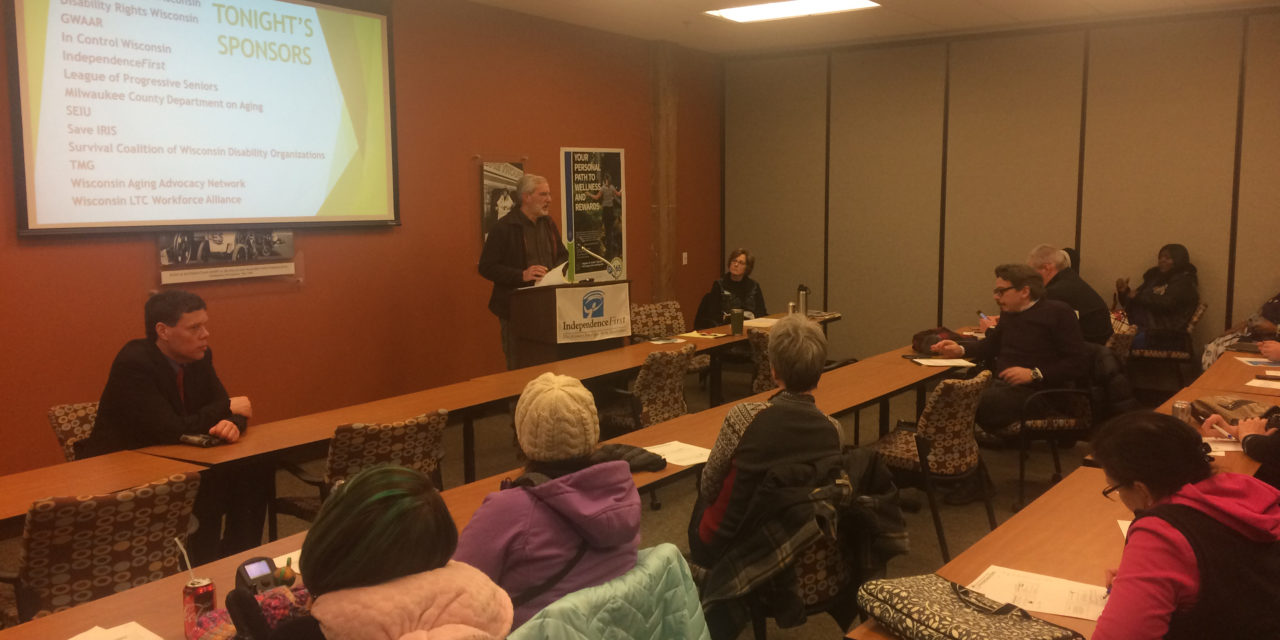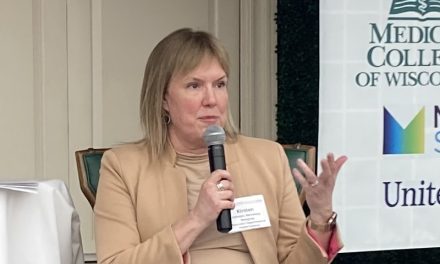
Medicaid rate increase, buy-in may help workforce shortage, advocates say

Long-term care advocates want to address a workforce shortage by increasing Medicaid rates and allowing direct care workers and family caregivers to buy into BadgerCare.
The Wisconsin Long-Term Care Coalition, a group representing aging and disability organizations, managed care organizations, IRIS consultant agencies and disability resource centers, laid out the requests at a Tuesday meeting at IndependenceFirst in Milwaukee.
Coalition Co-Chair Lynn Breedlove said a shortage of caregivers is undermining the state’s recent progress in eliminating wait lists for long-term care programs.
“Theoretically, we have a Medicaid long-term care system,” he said. “But it’s really only theoretical if you don’t have any workers.”
The coalition supports the state taking federal money to expand Medicaid. Republicans have long opposed expansion. Gov. Tony Evers plans to include it in his budget, which he plans to unveil Thursday.
Savings through expansion could go to other long-term care priorities, including an increase in Medicaid personal care rates.
“The governor’s been talking about a minimum wage of $15. We’re saying you need to start here,” said Janet Zander, advocacy and public policy coordinator for the Greater Wisconsin Agency on Aging Resources. “If we can’t roll this out everywhere, start where it’s needed the most, and these folks need it the most.”
According to the coalition’s proposals, reaching a $15 minimum wage will require a “sizable increase” in the Medicaid personal care reimbursement rate from the current $16.73 per hour to $23 an hour. Lawmakers approved a 2 percent increase in the last budget.
“Those days are gone,” Zander said. “Two percent is not going to cut it.”
The coalition wants rate increases for Family Care and IRIS, the state’s long-term care programs, and a review of the rate-setting methodology. They called for continuing a provision in the last budget that provided $30 million per year that went to Family direct care workers.
The coalition also wants the state to pursue a BadgerCare buy-in option for caregivers who make more than the federal poverty level and can’t afford the cost-sharing required on plans available through Healthcare.gov.
The buy-in would be for caregivers providing at least 80 hours of caregiving per month and making under 300 percent of the federal poverty level. Premiums would be based on a sliding fee scale.
Zander said that the proposal could “incentivize” workers who are limiting their hours because they don’t want to lose their BadgerCare.
“You earn too much, guess what? You lose your healthcare,” she said. “That’s a pretty bad trade-off at a time when we can’t beg, borrow and steal enough hours.”
Calena Roberts, a caregiver for her mother-in-law, said said many can’t afford to take on caregiving roles in part due to the low pay.
Roberts said caregivers need more training and that society needs to recognize caregiving as a “real profession.”
“Something really does need to be done,” she said. “We’re in a crisis mode.”
Robert Kraig, Citizen Action of Wisconsin executive director, said there’s a “huge opportunity” to address long-term care workforce issues.
“We need to bring a lot of people together to do this,” he said. “We have in this fight really strong partners who have analyzed the problem and come up with excellent solutions.”
Other proposals the coalition would like to see happen:
- Passing a bill requiring hospitals to notify caregivers when the patient is discharged and provide information and training related to the medical tasks they’ll need to perform at home. Hospitals have opposed the policy in the past.
- Provide a tax credit to family caregivers, which a bipartisan group of lawmakers introduced a bill on last week.
- Expand the dementia care specialists program by 12 new hires so that it covers every county in the state.
- Provide access to paid family and medical leave for direct care workers and family caregivers with jobs.
- Fund a pilot project to create family caregiver navigators to help communities of color, rural communities and other underserved populations.
- Expand the WisCaregiver Career Program, a $2.3 million program to attract and retain nursing home workers, to include direct care workers in the community or create a separate and parallel program.
This article first appeared in the Wisconsin Health News daily email newsletter. Sign up for your free trial here.


















.jpg?bwg=1612548324)












